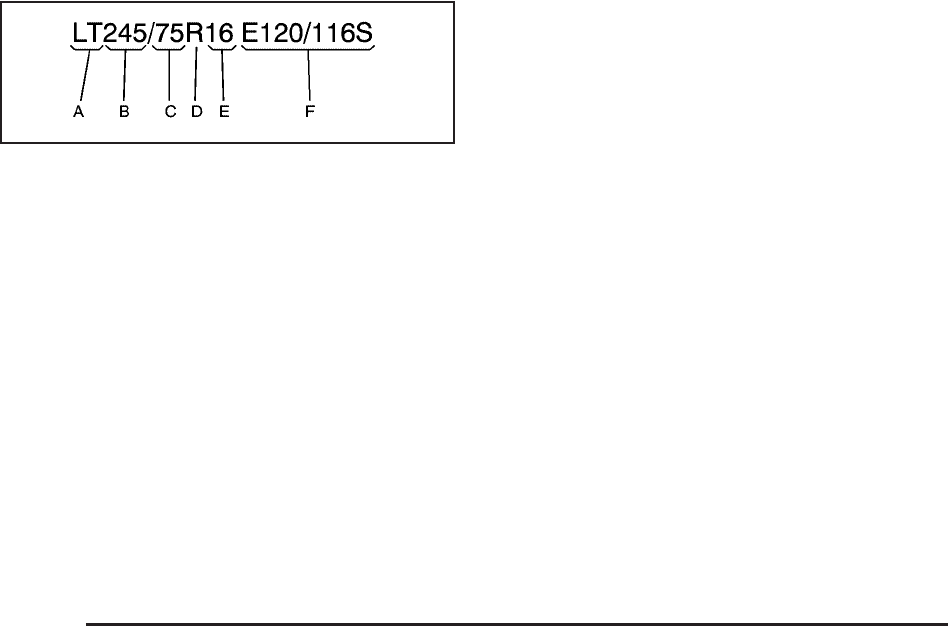
(A) Light Truck (LT-Metric) Tire: The United States
version of a metric tire sizing system. The letters LT as
the first two characters in the tire size means a light
truck tire engineered to standards set by the U. S. Tire
and Rim Association.
(B) Tire Width: The three-digit number indicates the
tire section width in millimeters from sidewall to sidewall.
(C) Aspect Ratio: A two-digit number that indicates
the tire height-to-width measurements. For example, if
the tire size aspect ratio is 75, as shown in item C of the
illustration, it would mean that the tire’s sidewall is
75% as high as it is wide.
(D) Construction Code: A letter code is used to
indicate the type of ply construction in the tire. The letter
R means radial ply construction; the letter D means
diagonal or bias ply construction; and the letter B means
belted-bias ply construction.
(E) Rim Diameter: Diameter of the wheel in inches.
(F) Service Description: The service description
indicates the load range and speed rating of a tire. The
load index can range from 1 to 279. Speed ratings
range from A to Z. The light truck tire size example
above shows dual or single tire configurations.
Tire Terminology and Definitions
Air Pressure: The amount of air inside the tire pressing
outward on each square inch of the tire. Air pressure
is expressed in pounds per square inch (psi) or
kilopascal (kPa).
Accessory Weight: This means the combined weight
of optional accessories. Some examples of optional
accessories are, automatic transmission, power steering,
power brakes, power windows, power seats, and air
conditioning.
Aspect Ratio: The relationship of a tire’s height to
its width.
Belt: A rubber coated layer of cords that is located
between the plies and the tread. Cords may be made
from steel or other reinforcing materials.
Bead: The tire bead contains steel wires wrapped by
steel cords that hold the tire onto the rim.
Light Truck (LT-Metric) Tire
5-66


















